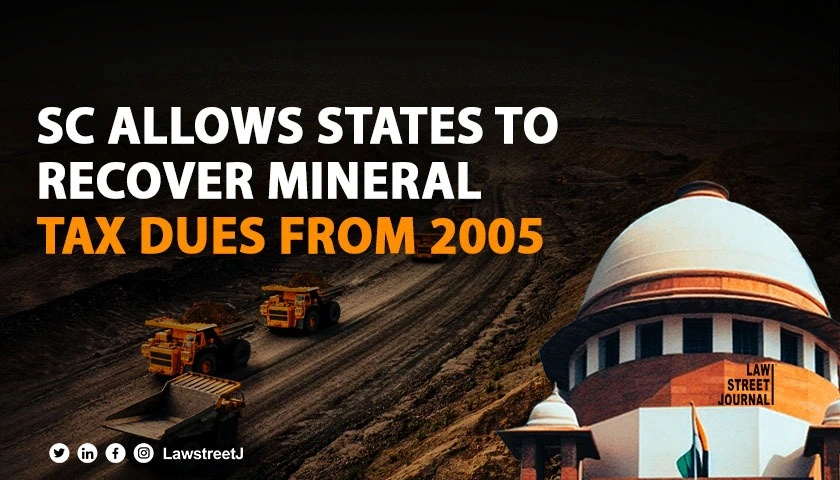The Supreme Court on Wednesday allowed the mineral rich States to recover their past dues on royalty and tax on mineral bearing land from April 1, 2005, from Centre and mining lease holders, in a major financial impetus to the mineral rich states.
The apex court made its clarification on applicability of July 25 judgement upholding the powers of the States to tax mineral rights.
The nine-judge bench led by Chief Justice of India D Y Chandrachud said the tax arrears can be paid to States by Centre over a staggered period of 12 years from April 1, 2026.
On July 25, 2024 the nine-judge by a majority of 8: 1 held that States have legislative competence to levy tax on mineral-bearing lands.
On July 31, the central government contended that any order asking it to pay the alleged dues with retrospective effect will have a “multipolar” impact.
The nine-judge bench also comprising justices Hrishikesh Roy, Abhay S Oka, J B Pardiwala, Manoj Misra, B V Nagarathna, Ujjal Bhuyan, Satish Chandra Sharma and Augustine George Masih, had then reserved its order on the issue of whether royalty levied by the Centre on mines and mineral-bearing lands since 1989 will be refunded to the states.
On July 25, the bench had upheld the power of the states to impose tax, saying royalty paid by mining lease holders to the central government is not a tax.
The court had declared the Mines and Minerals (Development and Regulation) Act 1957 do not limit the power of the States to impose the tax.
Justice Nagarathna, however, had differed with the majority view and held that royalty is in nature of tax.















